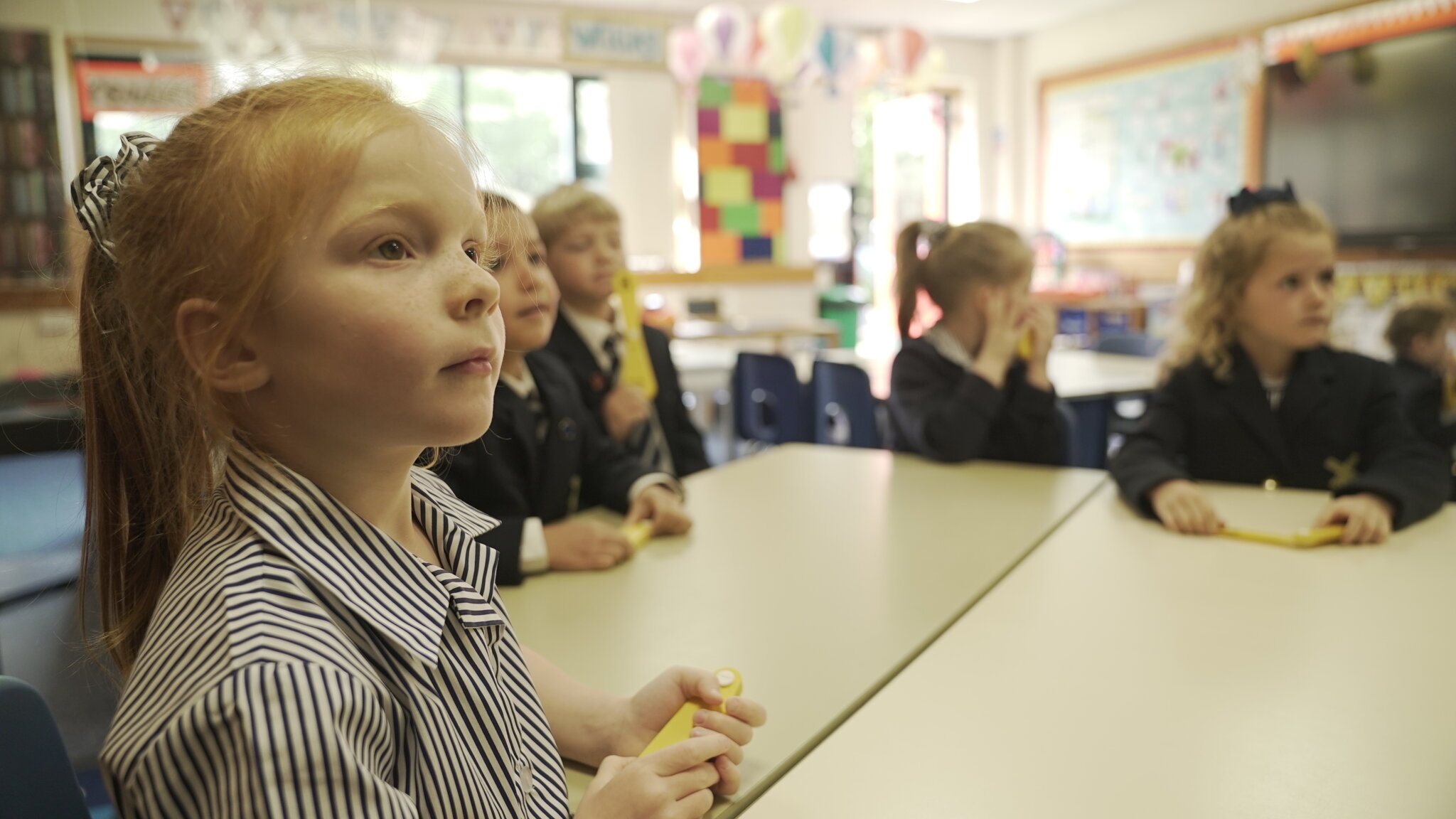Mathematics is not about numbers, equations, computations or algorithms: it is about understanding – William Paul Thurston

We believe that in order for pupils to be successful life-long learners in this subject, a number of strategies should be taught and then chosen by the pupil, depending on personal preference. For example, varied classroom resources are utilised alongside number recognition, place value and quick-fire mental arithmetic. Pupils are also shown how to record their findings both numerically and creatively through ‘Maths stories’, pictures and patterns representing number. We begin building these foundations in our Early Years in order for pupils to become self-assured and independent mathematicians. This enables them to eagerly access more challenging material and ensures misconceptions are addressed in the early stages. Once our pupils reach Junior level, they are building on years of knowledge and can quickly calculate sums and solve problems.
Making mistakes, discussion, peer work and asking questions is vital to achieving success and progressing in this subject. Our staff and pupils firmly believe the best results are gained through grit, determination and sustained effort. This core subject is at the heart of all that we do ‘Go down deep enough into anything and you will find Mathematics’ (Dean Schlicter)
National Curriculum purpose for teaching and learning Mathematics:
Mathematics is a creative and highly inter-connected discipline that has been developed over centuries, providing the solution to some of history’s most intriguing problems. It is essential to everyday life, critical to science, technology and engineering, and necessary for financial literacy and most forms of employment. A high-quality mathematics education therefore provides a foundation for understanding the world, the ability to reason mathematically, an appreciation of the beauty and power of mathematics, and a sense of enjoyment and curiosity about the subject.
Aims:
The national curriculum for mathematics aims to ensure that all pupils:
- become fluent in the fundamentals of mathematics, including through varied and frequent practice with increasingly complex problems over time, so that pupils develop conceptual understanding and the ability to recall and apply knowledge rapidly and accurately.
- reason mathematically by following a line of enquiry, conjecturing relationships and generalisations, and developing an argument, justification or proof using mathematical language
- can solve problems by applying their mathematics to a variety of routine and non-routine problems with increasing sophistication, including breaking down problems into a series of simpler steps and persevering in seeking solutions.
Throughout our school, the following topics are taught in Mathematics. This list is not exhaustive. We take into account the needs of our learners, while following structured schemes of work. Formal teaching of this subject begins in I2 (Year 1):
|
Number, Place, Value and Rounding |
Addition and Subtraction | Multiplication and Division | Fractions | Measures | Properties of Shapes | Position direction & Movement |
By I3 (Year 2), these topics are consolidated and include data handling.
Once our pupils reach Junior level (Year 3), the concepts remain the same, however the amount and level covered is more extensive.
By J2 (Year 4), all pupils should be fluent in all times tables up until 12 x 12 and at this level should be choosing shorter methods of calculating.
Upon reaching J3 and J4 level, pupils should be accessing higher level Mathematics, drawing on subject knowledge for calculating both mentally and in the written form. It is at this stage formal methods of statistics and algebra are introduced.